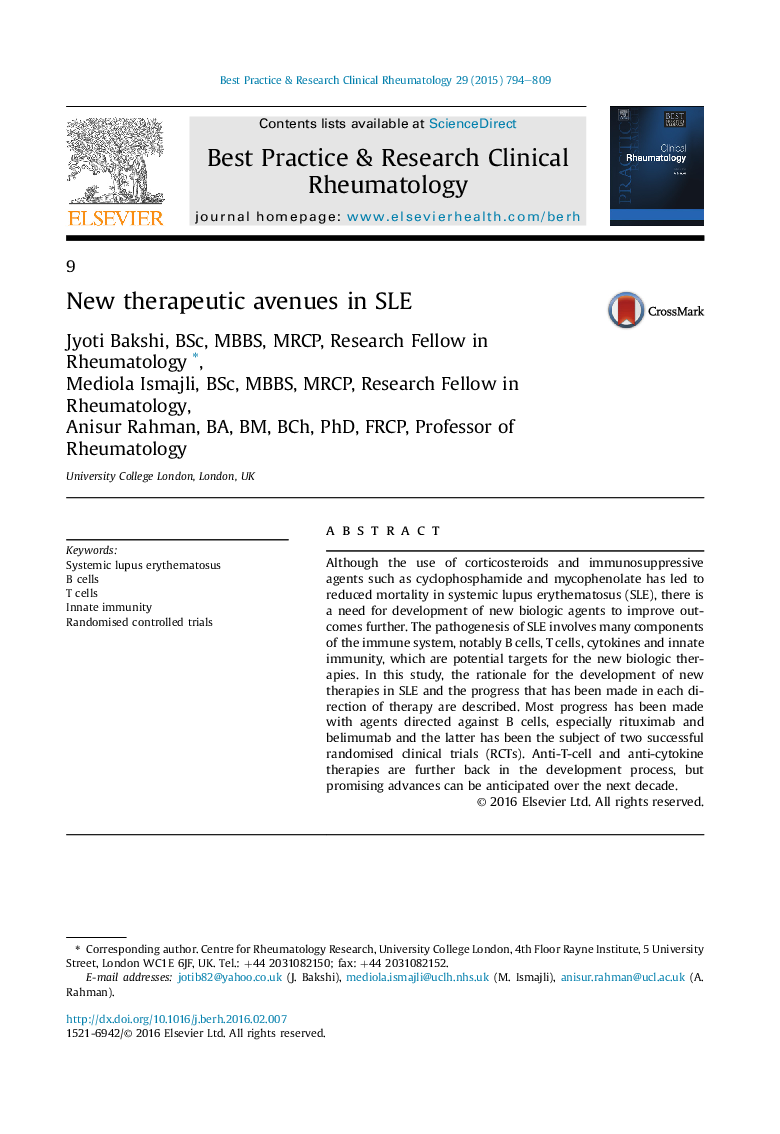| Article ID | Journal | Published Year | Pages | File Type |
|---|---|---|---|---|
| 3342818 | Best Practice & Research Clinical Rheumatology | 2015 | 16 Pages |
Although the use of corticosteroids and immunosuppressive agents such as cyclophosphamide and mycophenolate has led to reduced mortality in systemic lupus erythematosus (SLE), there is a need for development of new biologic agents to improve outcomes further. The pathogenesis of SLE involves many components of the immune system, notably B cells, T cells, cytokines and innate immunity, which are potential targets for the new biologic therapies. In this study, the rationale for the development of new therapies in SLE and the progress that has been made in each direction of therapy are described. Most progress has been made with agents directed against B cells, especially rituximab and belimumab and the latter has been the subject of two successful randomised clinical trials (RCTs). Anti-T-cell and anti-cytokine therapies are further back in the development process, but promising advances can be anticipated over the next decade.
